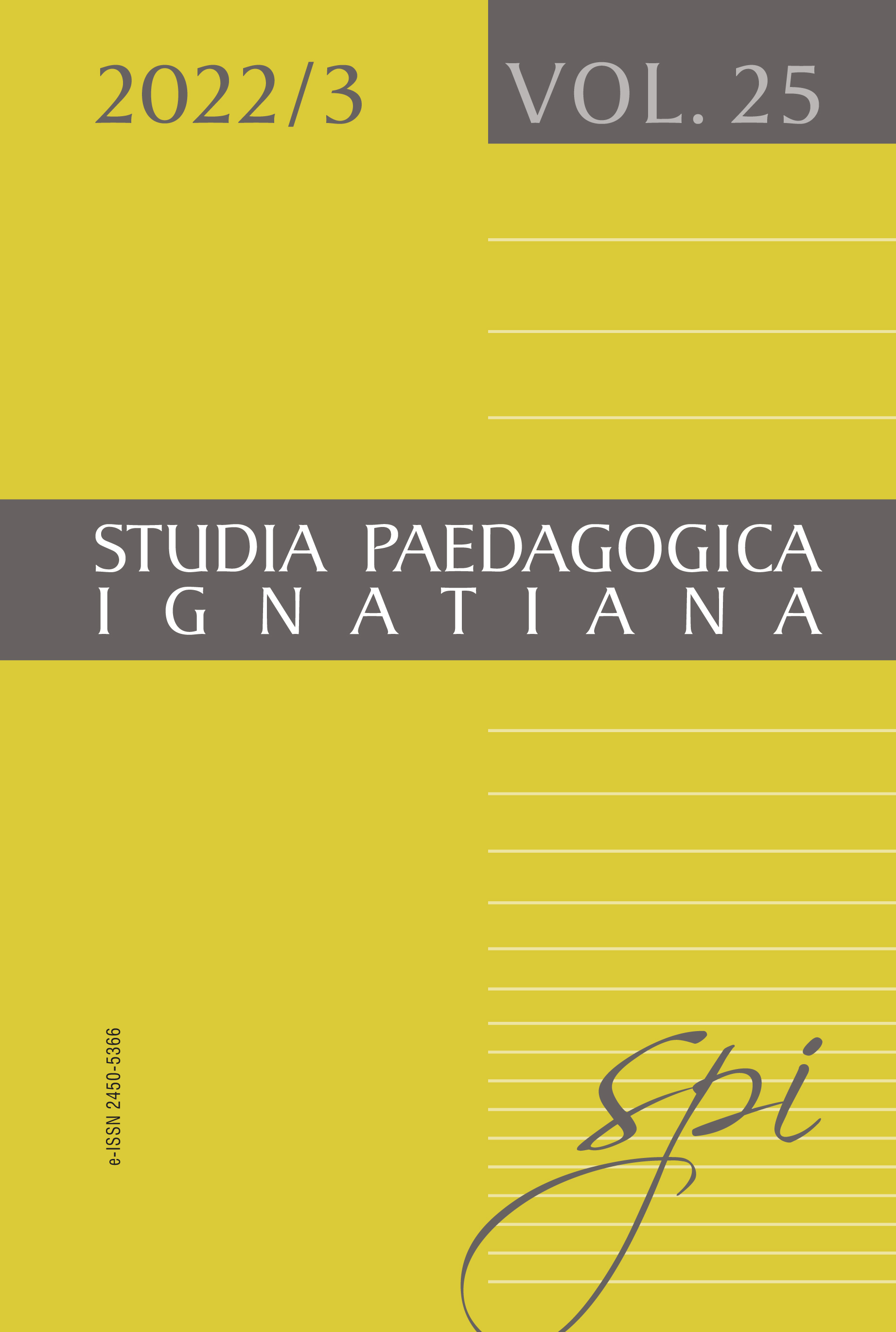The Worth of Words: The Ethical Significance of Dialogue Structured as Asking–Responding in Józef Tischner’s Philosophy
DOI:
https://doi.org/10.12775/SPI.2022.3.006Keywords
philosophy of dialogue, Józef Tischner, personalism, ethics of word, ethical dimension of dialogueAbstract
The importance of words has been emphasized by many ethicians and philosophers. Within interpersonal relationships, a significant dimension of the analysis of the word is its value. Ethics is dependent on the value of words, since without honest words we cannot have a real dialogue or then build a trustworthy community. In this paper, the author tries to show that within such a philosophical framework, the most fundamental element is a question–answer relationship, which is a basic structure for a dialogue. Asking is given special consideration by the Polish philosopher and priest Józef Tischner, who sees a question as a kind of request in the world of poverty which demands an ethical response. In this article, the author also presents Tischner’s original philosophy of drama—especially in respect to his view on a dialogic relationship between people—and then relationships within various groups, from large societies and nations to small communities. The ethical, axiological, anthropological, and even agathological and ontological significance of dialogue as asking–responding are also presented as a basis for a deeper communication.
References
Andrzejewski B. (2016). Filozofia słowa. Zarys dziejów, Poznań: Wydawnictwo Naukowe Uniwersytetu im. Adama Mickiewicza.
Austin J.L. (1962). How to Do Things with Words: The William James Lectures Delivered at Harvard University in 1955, New York: Oxford University Press.
Bobko A. (2007). Myślenie wobec zła. Religijny i polityczny wymiar myślenia w filozofii Kanta i Tischnera, Kraków: Instytut Myśli Józefa Tischnera.
Bodhi B., Right Speech, Right Action, Right Livelihood, http://www.vipassana.com/resources/8fp4.php [access: 12.10.2019].
Cegieła A. (2014). Słowa i ludzie. Wprowadzenie do etyki słowa, Warszawa: Elipsa.
Confucius (2018). The Analects of Confucius: The Complete Books of Confucian Wisdom, trans. J. Legge, [s.l.]: Adansonia Press.
Coreth E. (1958). “Metaphysik als Aufgabe,” in Aufgaben der Philosophie. Drei Versuche von E. Coreth, C. Muck, J. Schasching, Innsbruck: Felizian Rauch.
Coreth E. (1980). Metaphysik. Eine methodisch-systematische Grundlegung, Innsbruck–Wien–München: Tyrolia Verlag.
Coreth E. (1986). Was ist der Mensch? Grundzüge philosophische Anthropologie, Innsbruck–Wien– München: Tyrolia Verlag.
Coreth E. (1994). Grundriss der Metaphysik, Innsbruck–Wien: Tyrolia Verlag.
Glinkowski W.P. (2020). Człowiek w dialogu, Łódź: Wydawnictwo Uniwersytetu Łódzkiego.
Jagiełło J. (ed.). (2020). “From Axiology to Agathology: Józef Tischner’s Philosophy of Man,” in Józef Tischner, ed. J. Jagiełło, Kraków: Wydawnictwo Naukowe Akademii Ignatianum, pp. 41–109.
Lindgren A. (n.d.). Pippi Långstrump i Söderhavet [many editions].
Peirce Ch.S. (1955). “Logic as Semiotic: The Theory of Signs,” in Philosophical Writings of Peirce. Selected and edited with an introduction by J. Buchler, New York: Dover Publications, Inc.
Plato, Phaedrus, http://classics.mit.edu/Plato/phaedrus.html [access: 19.10.2019].
Searle J. (1979). Expression and Meaning: Studies in the Theory of Speech Acts, Cambridge: Cambridge University Press.
Tischner J. (1991). Zarys filozofii człowieka dla duszpasterzy i artystów, Kraków: Wydawnictwo Naukowe Papieskiej Akademii Teologicznej.
Tischner J. (1998a). Filozofia dramatu. Wprowadzenie, Kraków: Znak.
Tischner J. (1998b). Spór o istnienie człowieka, Kraków: Znak.
Tischner J. (2012). Współczesna filozofia ludzkiego dramatu. Wykłady, Kraków: Instytut Myśli Józefa Tischnera.
The First Noble Truth: The Noble Truth of “dukkha”. (2013), edited by Access to Insight (BCBS Edition), 5 November 2013, http://www.accesstoinsight.org/ptf/dhamma/sacca/sacca1/index.html [access: 12.10.2019].
Downloads
Published
How to Cite
Issue
Section
License
Copyright (c) 2022 Dominika Dziurosz-Serafinowicz

This work is licensed under a Creative Commons Attribution-NoDerivatives 4.0 International License.
By submitting an article, the author declares that:
they are the author of the article (hereinafter referred to as the Work) and:
- is entitled to exclusive and unlimited copyright to the Work,
- is entitled to dispose of the copyrights to the Work.
The Author grants the Jesuit University Ignatianum in Cracow a free, non-exclusive, territorially unlimited license to use the Work in the following fields of exploitation:
- publishing the Work in paper, digital or magnetic form;
- multiplying the work by any method, without limiting the number of editions or copies;
- distribution of the work and its copies in any form, including marketing, sales, lending, and lease;
- placing the work in a computer memory;
- distribution of the work in information networks, including the Internet;
- public performance, exhibition, display, reproduction, broadcasting and re-broadcasting, as well as making the Work available to the public in such a manner that everyone could have access to it at a time and place chosen by themselves;
- within the scope of dependent rights to the Work, covering, in particular, the right to make necessary changes to the Work, resulting from editorial and methodical preparation, as well as to make translations of the Work into other languages.
The license right shall be transferred the moment of transfer of the Work to the Jesuit University Ignatianum in Cracow. The Jesuit University Ignatianum in Cracow is entitled to grant sub-licenses to the Work in terms of the right granted. The license shall be limited in time for a period of 15 years from the date it is granted.
Stats
Number of views and downloads: 1349
Number of citations: 0



